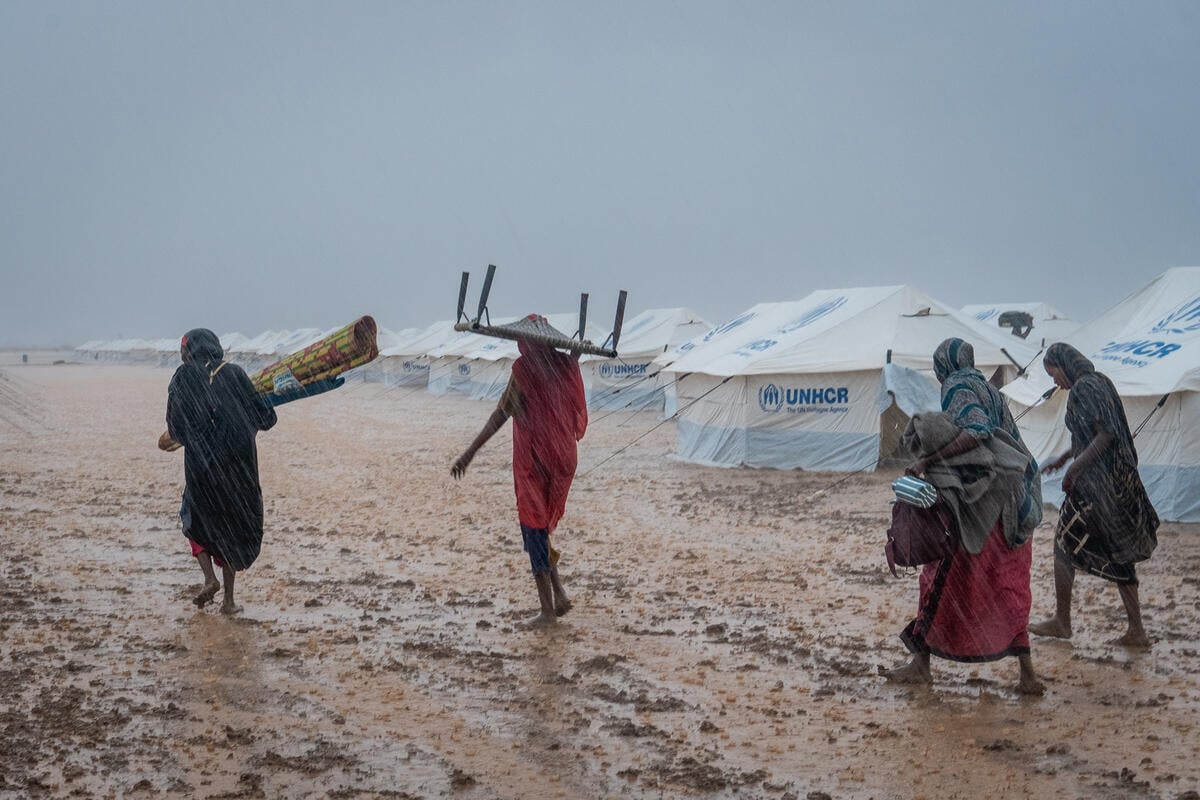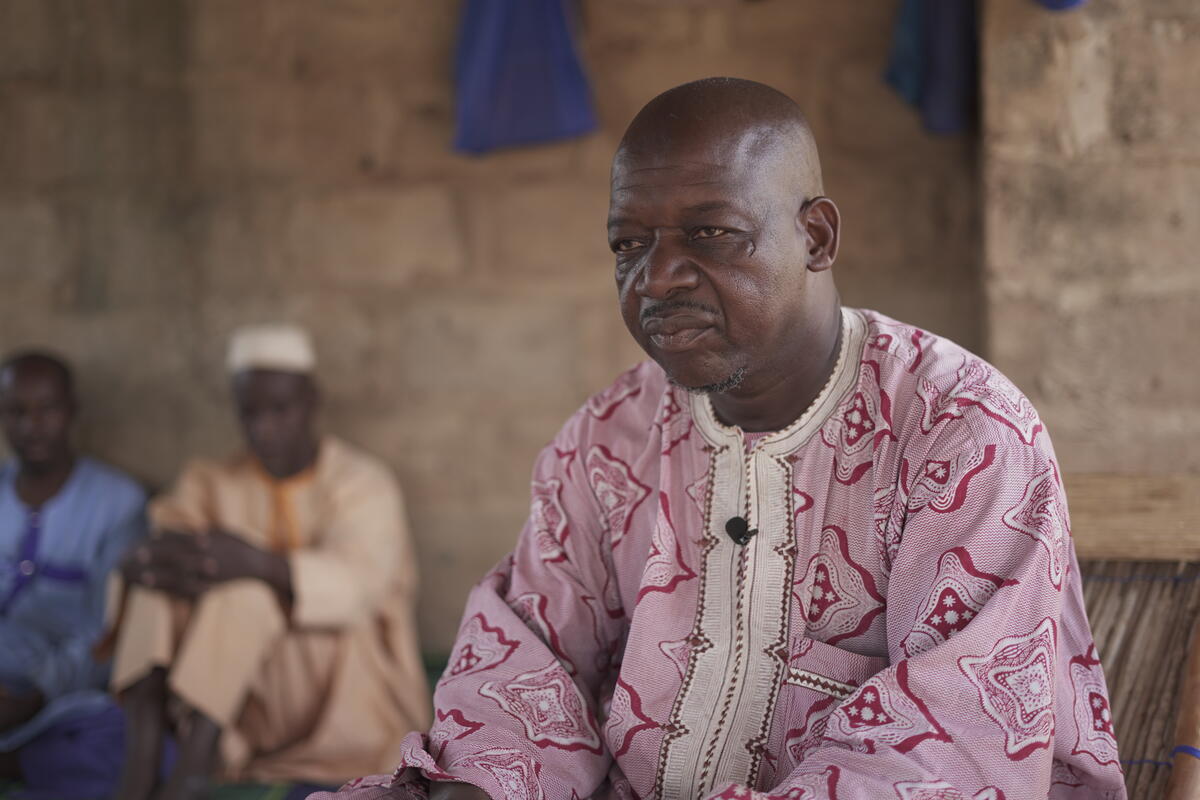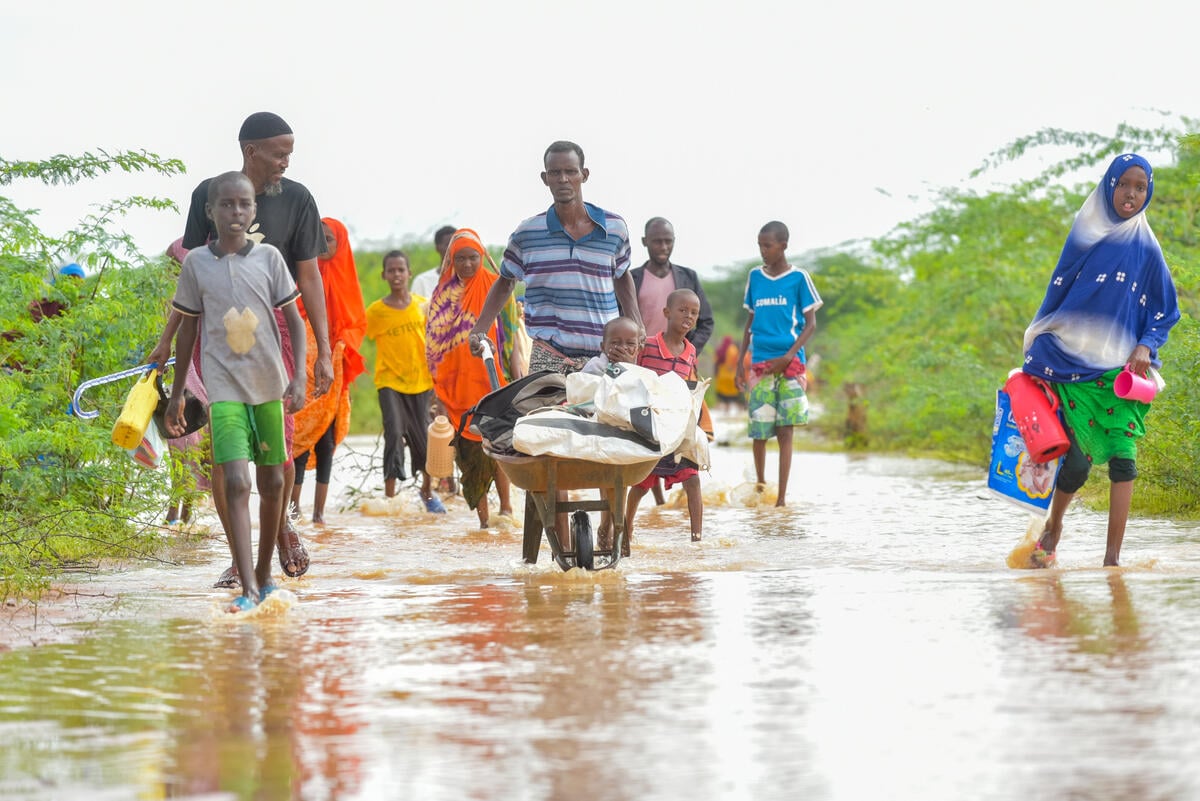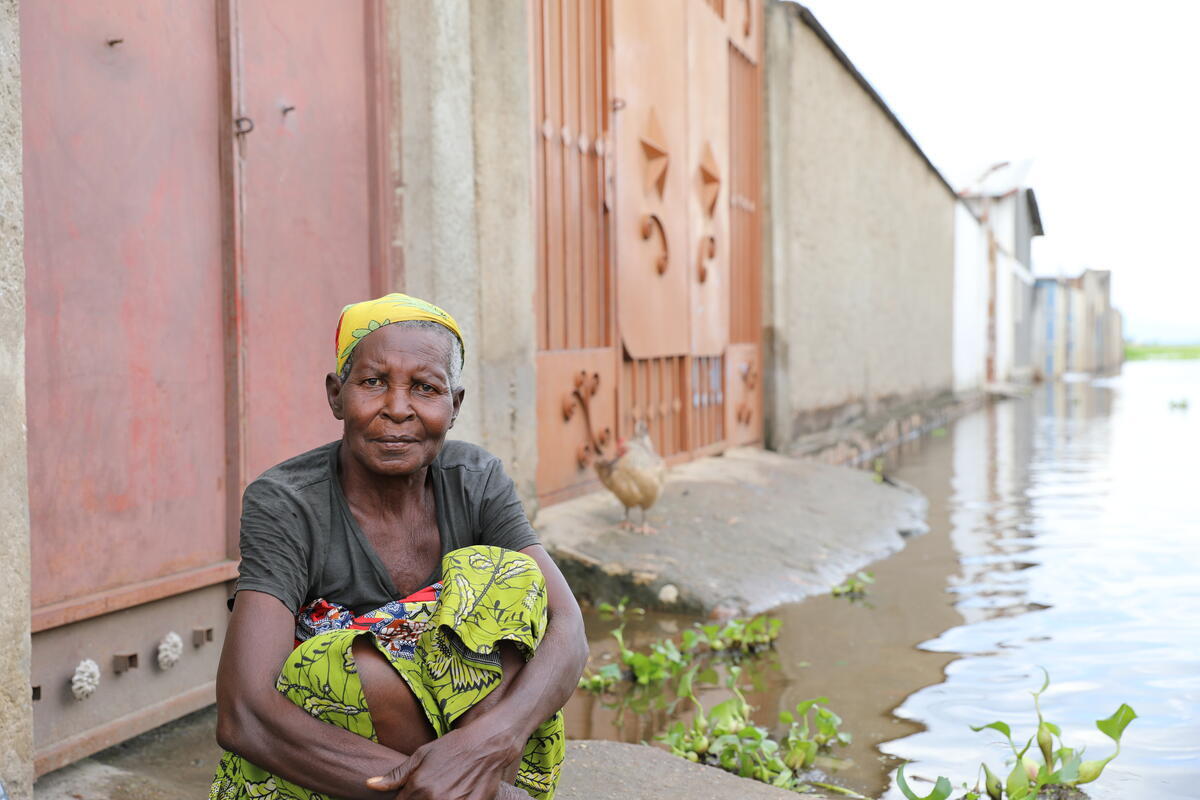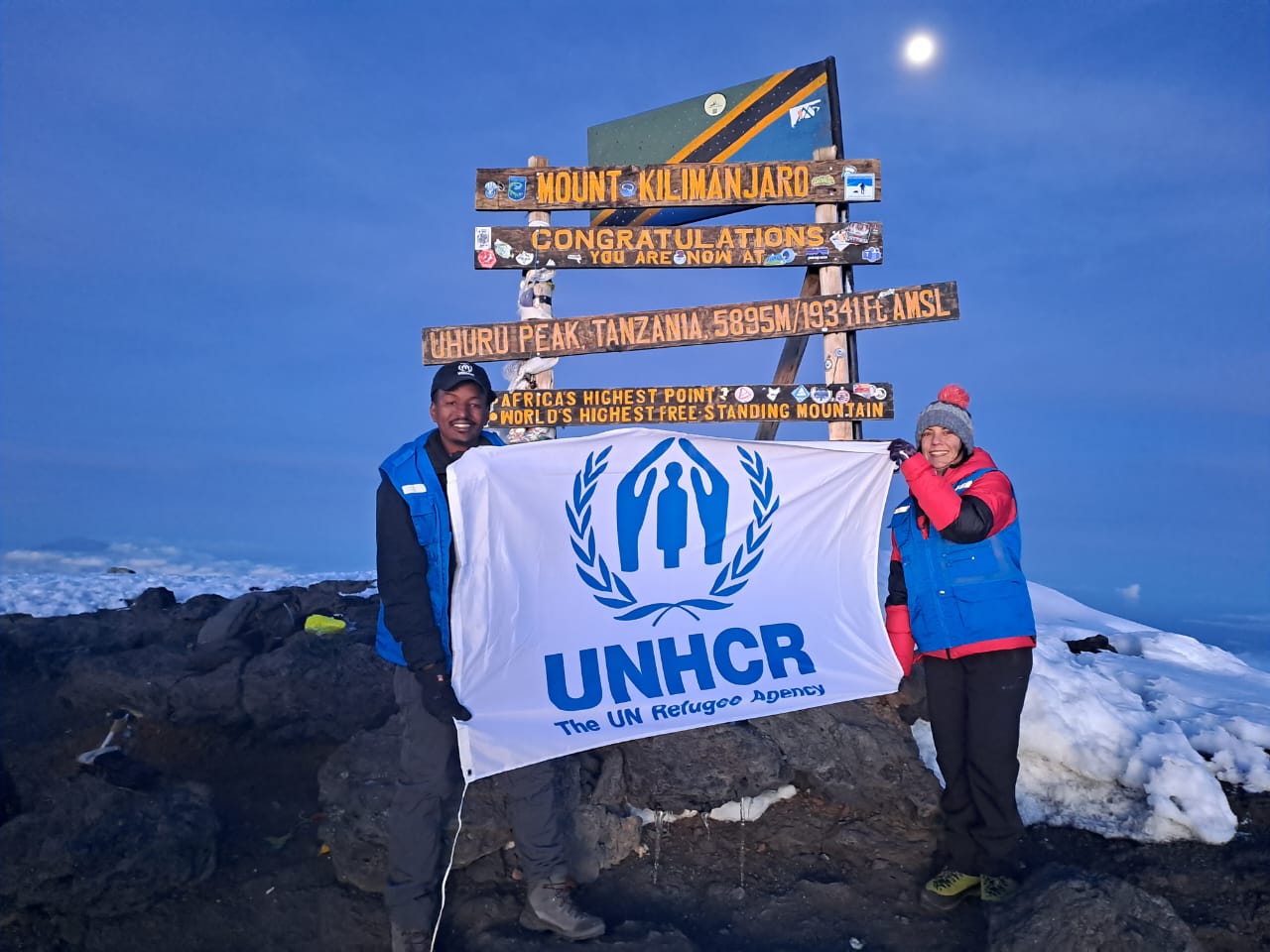UNHCR launches fund to shield refugees and other displaced people from climate shocks
UNHCR launches fund to shield refugees and other displaced people from climate shocks
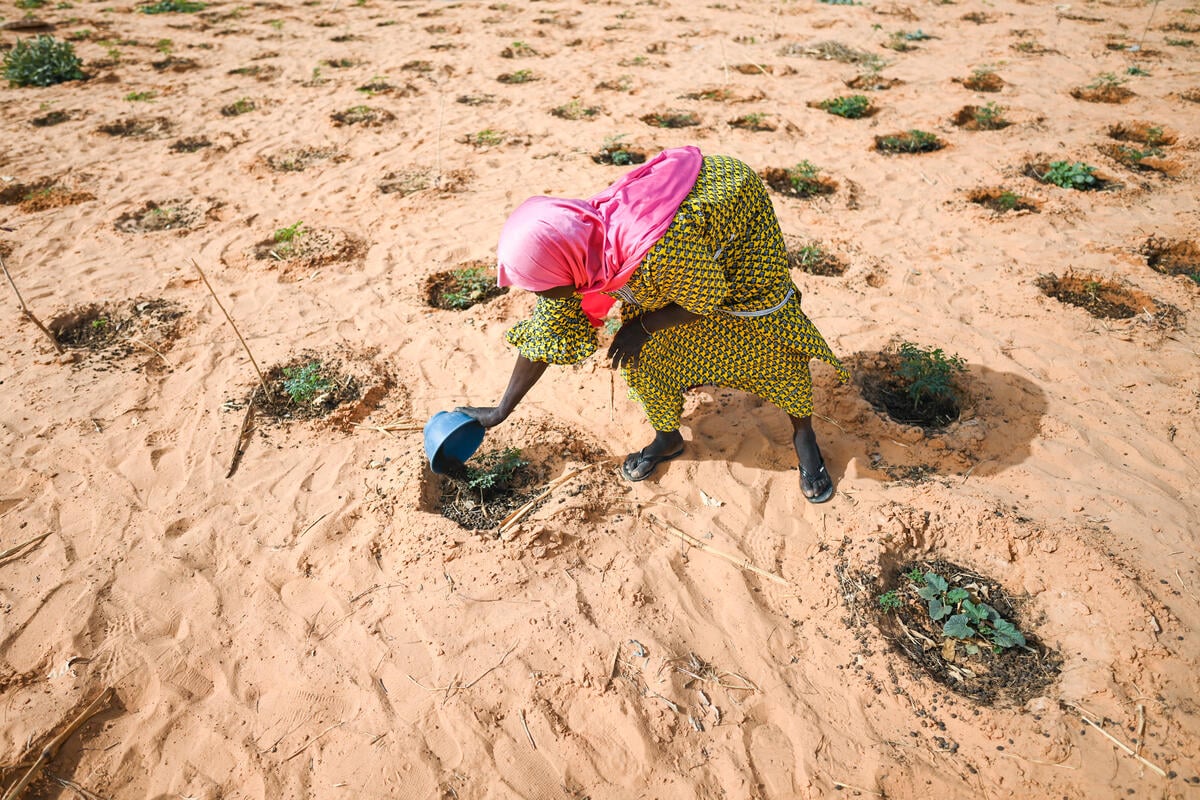
A Malian refugee waters plants in a vegetable garden cultivated by displaced and local people in Ouallam, Niger.
GENEVA – UNHCR, the UN Refugee Agency, today launched the UNHCR Climate Resilience Fund, seeking to boost the protection of refugees and displaced communities who are most threatened by climate change.
As part of its work to protect and assist more than 114 million people who have been forced to flee, UNHCR already seeks to build people’s resilience and reduce their vulnerability to risks, including the impact of climate change. For the first time, the Fund will exclusively target financing efforts to protect the most threatened displaced communities, equipping them to prepare for, withstand and recover from climate-related shocks.
Contributions to the Fund will boost the reach and impact of UNHCR’s climate action, enabling the agency and its partners to commit to climate-related projects in countries where it is already responding to major conflict-related situations of forced displacement, such as Bangladesh, Chad, Ethiopia, Kenya and Mozambique.
The Fund will increase the availability of environmentally sustainable resources in displacement settings, providing more clean energy, for example, to power the water, schools and health infrastructure used by refugees and their hosts. It will support environmental restoration and will invest in resilience by building climate-resilient shelters, supporting climate-smart livelihoods, and reducing the impact of the humanitarian response on the natural environment.
“The impacts of climate change are only becoming more devastating, increasingly exacerbating conflict, destroying livelihoods and, ultimately, triggering displacement,” said UN High Commissioner for Refugees, Filippo Grandi. “Many of the countries that have been the most generous in accepting refugees are also the most impacted by the climate crisis. Funding available to address the impacts of climate change is not reaching those forcibly displaced, nor the communities hosting them.”
The Fund will prioritize projects whose effects are felt locally and which involve affected communities in their design and implementation, as well as aligning with national climate strategies and development plans.
Climate risks are strongly correlated with conflict and poverty, which so many refugees and other forcibly displaced people experience. In 2022, over 70 per cent of refugees and asylum-seekers fled from highly climate-vulnerable countries. Around 60 per cent of forcibly displaced and stateless people live in fragile and/or conflict-affected countries that are among the most vulnerable to climate change, and the least ready to adapt.
“By reducing exposure to climate-related hazards, securing access to sustainable resources, and promoting inclusion, these projects will deliver tangible improvements in the living conditions, safety, and well-being of refugees and their hosts,” Grandi added. “In the spirit of the Loss and Damage Fund activated at COP28, UNHCR is committed to advocate and significantly increase funding to support climate action in fragile environments.”
UNHCR aims to raise US$100 million for the Fund by the end of 2025 to support refugees, host communities and countries of origin hardest hit by the climate emergency, and to promote refugees’ inclusion in climate-related measures that are taken nationally and locally. The Fund is expected to become a channel for partners to contribute to UNHCR’s climate programming.
For more information
Olga Sarrado Mur, [email protected], +41 79 740 2307
About UNHCR
UNHCR, the UN Refugee Agency, leads international action to protect people forced to flee their homes because of conflict and persecution. UNHCR delivers life-saving assistance like shelter, food and water, helps to safeguard fundamental human rights, and develops solutions that ensure people have a safe place to call home where they can build a better future. We also work to ensure that stateless people are granted a nationality.
UNHCR works to ensure people forced to flee due to persecution, violence and human rights violations caused or exacerbated by the adverse effects of climate change and disasters, and who need international protection, are protected and safe. As part of this, UNHCR recently launched the Focus Area Strategic Plan for Climate Action 2024-2030, a document that sets out a global roadmap for prioritized action. The plan has set four interdependent objectives for protection, solutions, resilience, and adaptation to be achieved in support of national governments, together with partners.
UNHCR has partnered with Climate Group to launch UNHCR’s Climate Resilience Fund as part of the 2024 US Climate Action Summit.


